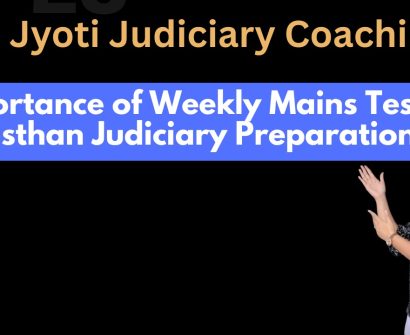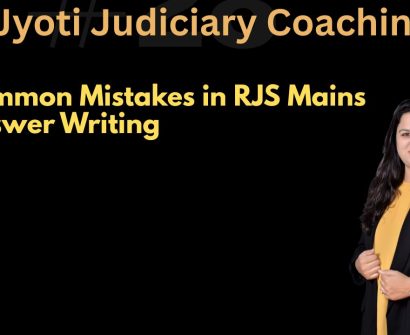
This doctrine is embedded in the Section 53A of Transfer of Property Act, 1882. According to this doctrine, in simple words is that if a person makes an agreement with another and lets the other person acts in furtherance of the contract, he has created an equity that cannot be resisted. So, the mere absence of a formality like registration does not affect the performance of the contract since the person in the contract has acted his part. Therefore, the transferor cannot go against the transferee or anyone claiming under him. However, it is to be noted that the contract should not be unsigned or unstamped. The rights of the transferee is not affected even if the notice of part performance is not given to the transferor. Since, the contract is signed by both the parties and the transferee has acted his part, the transferor is bound by the contract to perform his part, otherwise, he needs to pay the compensation for not acting on his part.
If you want to be a judicial officer in Rajasthan and are looking for RJS coaching in Jaipur, here, at Jyoti Judiciary we provide comprehensive study material to make your preparation solidified and topnotch. From preliminary mock tests, to mains answer writing sessions every material required for clearing the exam is provided. We have separate legal current affairs classes, legal general knowledge, current affairs classes all in one time enrolment. Hurry up.
Section 53 A of Transfer of Property Act, 1882,
According to this Section, when a person contracts with another person to transfer an immovable property, the contract must be properly signed by the parties or someone on behalf of the parties, so that the transfer can be ascertained with reasonable certainty. And when the transferee has taken possession of the property as part performance of the contract or has done some other act as part performance of the contract and is willing to perform his part of the contract (e.g., paying amount for property), the transferor cannot go back on his words or perform breach of the contract, even when the transfer has not been completed in the prescribed manner by the law (i.e., registration of the property).









